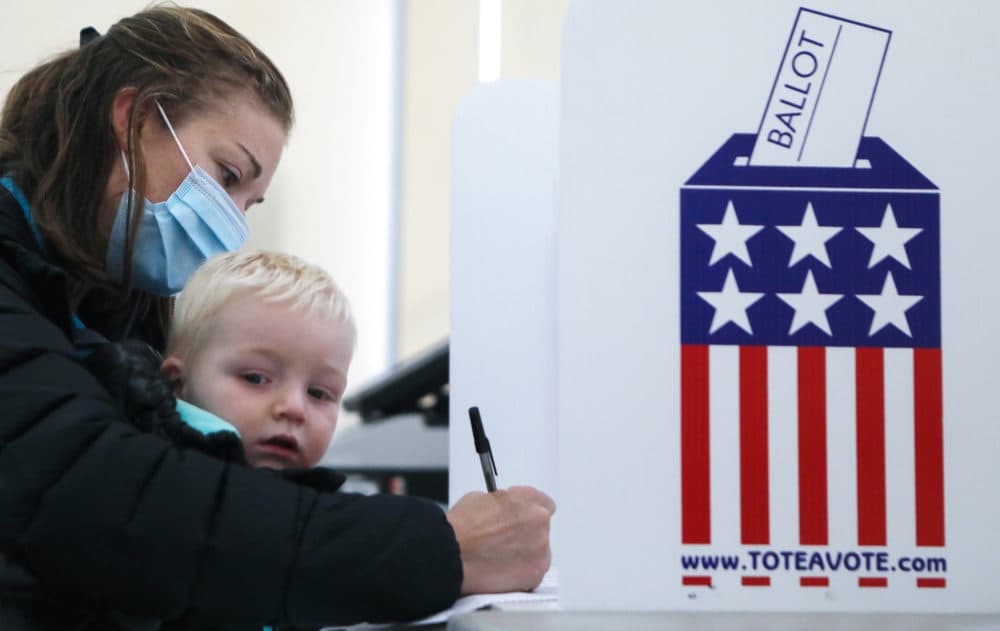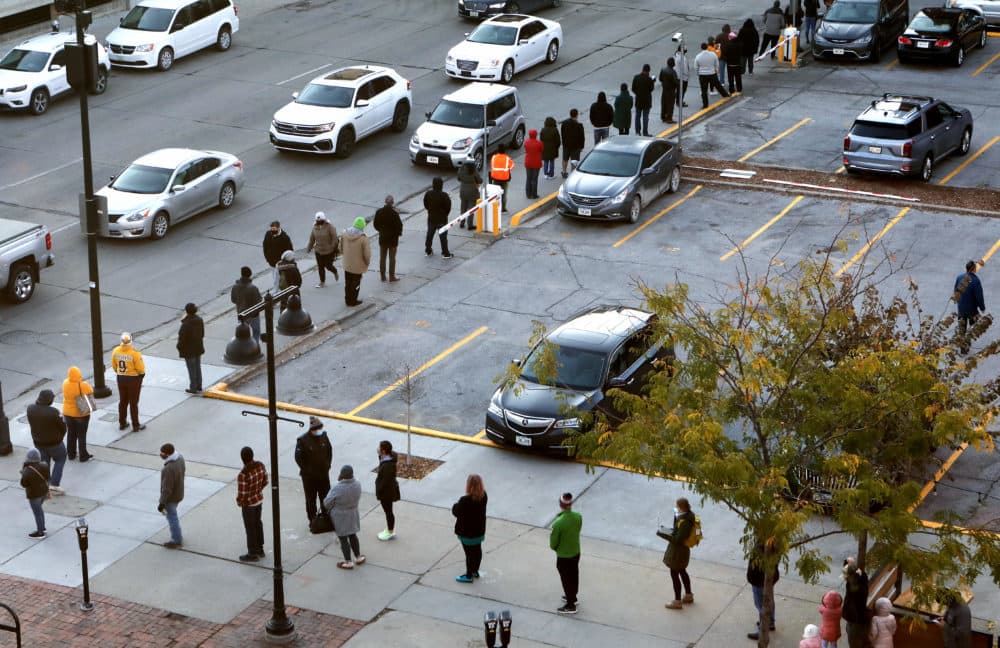Advertisement
Commentary
The America We Choose

I voted for the first time at the age of 38, four months after becoming a naturalized citizen of the United States.
My parents had moved to the U.S. in 1964 to go to graduate school when I was 10-years-old, and though I’d spent the majority of my life in this country, my affinities, like my extended family, lay largely in Canada.
In the mid- and late 1960s, when U.S. troops were dropping napalm on Vietnam civilians (and dying themselves in grotesque numbers) and the U.S. government was reviled around the world, I was happy to be able to travel on my Canadian passport. When Birmingham, Alabama sheriff Bull Connor let loose dogs and water cannons on nonviolent civil rights activists and open segregationist George Wallace was a serious candidate for president in a race that closet racist Richard Nixon won, I was comforted to know that I could always go “home” again. When Canada introduced socialized medicine, I was relieved to realize that my parents – who were starting to develop some serious health conditions – could too.
But by 1992, I had to admit that I was likely to stay in the U.S. for the foreseeable future. So after a lawyer friend warned me that if Newt Gingrich had his way, my green card and the taxes I’d paid my entire working life might not be enough to ensure that I would eventually get Social Security, I grudgingly applied for American citizenship.
I have no I Voted sticker to slap on my chest, just a frantically anxious heart beating inside it.
The swearing-in ceremony was on the first day of a long-planned summer vacation in Quebec. My family and I were on our way out of town, and went to it with the same attitude we brought to perfunctory but obligatory appearances at our spouse’s Christmas party. But when we walked into Faneuil Hall casually attired for a long summer drive, my kids in shorts, T-shirts, and flip flops, I felt embarrassed.
All the other people obtaining citizenship that day had dressed carefully, their clothes formal and festive as if they were attending a baptism, maybe even a wedding. Their friends and families were beaming, some weeping into the bouquets of flowers they cradled, waiting to bestow upon the new citizens. I was a fortunate Canadian brought to this country by my parents. What had felt to me like an inconvenience was for these enormously brave and industrious immigrants a hard-earned triumph.
I remember little about the ceremony or about the oath of allegiance itself, except that it struck me as both naïve and cruel to require us to renounce our loyalty to where we had come from and were leaving behind, as if there could be no love in our hearts and room in our loyalties for more than one home, more than one people.
Advertisement

But what lingers to this day were the murmurs and whoops of these new citizens and their families, a symphony of English, Spanish, Portuguese, Hindi, Amharic, and Laotian that shared a common pitch of joy. They believed in this country and presumably were feeling the benefits of all they’d put into it. I was moved by their happiness and ashamed of my privilege, of so easily and thoughtlessly acquiring something that everyone around me had toiled so hard for.
So when Bill Clinton and Al Gore took the stage at Madison Square Garden later that summer to accept their nominations, I felt — possibly for the first time in my life — a surge of patriotism. Don’t stop thinking about tomorrow, Fleetwood Mac sang. Yesterday’s gone, they promised.
The excitement and optimism I felt that night, that I felt for the months between being naturalized and casting my first vote, now seems to have been something I only saw in a movie. As Donald Trump has so cruelly taught us, yesterday isn’t gone. He and his enablers have brought it back with a retributive rage. Napalmed children have been replaced by caged ones, Bull Connor’s been replaced by Proud Boys, and 48 years after the Voting Rights Act was signed, today’s Supreme Court has reversed it and, along with Trump appointee Louis DeJoy’s postal service, is doing its best to limit and suppress voter rights, particularly in swing states.
This year, older and considerably more anxious, I voted by mail rather than go to the polls. I have no I Voted sticker to slap on my chest, just a frantically anxious heart beating inside it.
Napalmed children have been replaced by caged ones, Bull Connor’s been replaced by Proud Boys, and 48 years after the Voting Rights Act was signed, today’s Supreme Court has reversed it...
In the past month, I’ve been calling Democrats around the country with information on where and how to vote. In doing so, I’ve heard how — thanks to the mendacity and utter shamelessness of Trump and his sycophants in every office — people no longer trust the Post Office, no longer trust the poll watchers, no longer trust the Congress or the Courts. They have been robbed of their confidence in the fundamental integrity of our vaunted democracy.
But they are also determined to take it back. I’ve heard countless stories of people standing in line for hours to vote early, of returning multiple times to their local election offices to physically hand in their ballots, of flying from one city to another just to vote in person.
I’m still not a nationalist. I don’t believe in pledging allegiance to any country. But I do pledge allegiance to this cacophonous, vibrant mélange of real people who still believe in the idea of America, living messy and hopeful lives, interdependent for better and worse, but mostly for better.
One way or another, I’ll be out on the streets with them in the days after the election — hopefully celebrating, but otherwise actively, noisily protecting a system of government that its leaders are all too willing to destroy. Those who would hang on to the power they’ve so avidly abused leave us no alternative.
